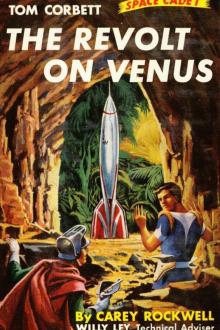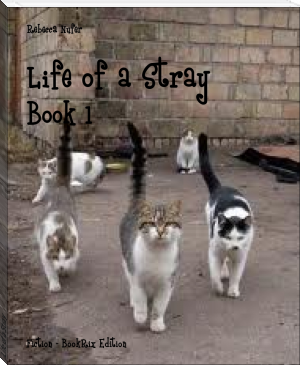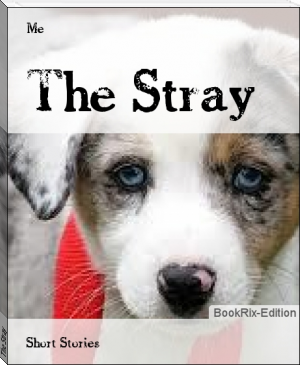Hypatia — or New Foes with an Old Face by Charles Kingsley (e book reader TXT) 📗

- Author: Charles Kingsley
Book online «Hypatia — or New Foes with an Old Face by Charles Kingsley (e book reader TXT) 📗». Author Charles Kingsley
‘Eh? That is the right way to look at the phenomena, is it? Well, after all, I am sorry for you.... almost like you.... All your wounds in front, as a man’s should be. Poor fop! Lais and Thais will never curl those dainty ringlets for you again! What is that bas-relief upon your shield? Venus receiving Psyche into the abode of the gods!.... Ah! you have found out all about Psyche’s wings by this time.... How do I know that? And yet, why am I, in spite of my common sense—if I have any—talking to you as you, and liking you, and pitying you, if you are nothing now, and probably never were anything? Bran! What right had you to pity him without giving your reasons in due form, as Hypatia would have done? Forgive me, sir, however—whether you exist or not, I cannot leave that collar round your neck for these camp-wolves to convert into strong liquor.’
And as he spoke, he bent down, and detached, gently enough, a magnificent necklace.
‘Not for myself, I assure you. Like Ate’s golden apple, it shall go to the fairest. Here, Bran!’ And he wreathed the jewels round the neck of the mastiff, who, evidently exalted in her own eyes by the burden, leaped and barked forward again, taking, apparently as a matter of course, the road back towards Ostia, by which they had come thither from the sea. And as he followed, careless where he went, he continued talking to himself aloud after the manner of restless self-discontented men.
....‘And then man talks big about his dignity and his intellect, and his heavenly parentage, and his aspirations after the unseen, and the beautiful, and the infinite—and everything else unlike himself. How can he prove it? Why, these poor blackguards lying about are very fair specimens of humanity.—And how much have they been bothered since they were born with aspirations after anything infinite, except infinite sour wine? To eat, to drink; to destroy a certain number of their species; to reproduce a certain number of the same, two-thirds of whom will die in infancy, a dead waste of pain to their mothers and of expense to their putative sires.... and then—what says Solomon? What befalls them befalls beasts. As one dies, so dies the other; so that they have all one breath, and a man has no pre-eminence over a beast; for all is vanity. All go to one place; all are of the dust, and turn to dust again. Who knows that the breath of man goes upward, and that the breath of the beast goes downward to the earth? Who, indeed, my most wise ancestor? Not I, certainly. Raphael Aben-Ezra, how art thou better than a beast? W hat pre-eminence hast thou, not merely over this dog, But over the fleas whom thou so wantonly cursest? Man must painfully win house, clothes, fire.... A pretty proof of his wisdom, when every flea has the wit to make my blanket, without any labour of his own, lodge him a great deal better than it lodges me! Man makes clothes, and the fleas live in them.... Which is the wiser of the two?....
‘Ah, but—man is fallen.... Well—and the flea is not. So much better he than the man; for he is what he was intended to be, and so fulfils the very definition of virtue, which no one can say of us of the red-ochre vein. And even if the old myth be true, and the man only fell, because he was set to do higher work than the flea, what does that prove—but that he could not do it?
‘But his arts and his sciences?.... Apage! The very sound of those grown-children’s rattles turns me sick.... One conceited ass in a generation increasing labour and sorrow, and dying after all even as the fool dies, and ten million brutes and slaves, just where their fore-fathers were, and where their children will be after them, to the end of the farce.... The thing that has been, it is that which shall be; and there is no new thing under the sun....
‘And as for your palaces, and cities, and temples.... look at this Campagna, and judge. Flea-bites go down after a while—and so do they. What are they but the bumps which we human fleas make in the old earth’s skin?. Make them? We only cause them, as fleas cause flea-bites.... What are all the works of man, but a sort of cutaneous disorder in this unhealthy earth-hide, and we a race of larger fleas, running about among its fur, which we call trees? Why should not the earth be an animal? How do I know it is not? Because it is too big? Bah! What is big, and what is little? Because it has not the shape of one?.... Look into a fisherman’s net, and see what forms are there! Because it does not speak?.... Perhaps it has nothing to say, being too busy. Perhaps it can talk no more sense than we.... In both cases it shows its wisdom by holding its tongue. Because it moves in one necessary direction? .... How do I know that it does? How can I tell that it is not flirting with all the seven spheres at once, at this moment? But if it does—so much the wiser of it, if that be the best direction for it. Oh, what a base satire on ourselves and our notions of the fair and fitting, to say that a thing cannot be alive and rational, just because it goes steadily on upon its own road, instead of skipping and scrambling fantastically up and down without method or order, like us and the fleas, from the cradle to the grave! Besides, if you grant, with the rest of the world, that fleas are less noble than we, because they are our parasites, then you are bound to grant that we are less noble than the earth, because we are its parasites. .... Positively, it looks more probable than anything I have seen for many a day.... And, by the bye, why should not earthquakes, and floods, and pestilences, be only just so many ways which the cunning old brute earth has of scratching herself when the human fleas and their palace and city bites get too troublesome?’
At a turn of the road he was aroused from this profitable meditation by a shriek, the shrillness of which told him that it was a woman’s. He looked up, and saw close to him, among the smouldering ruins of a farmhouse, two ruffians driving before them a young girl, with her hands tied behind her, while the poor creature was looking back piteously after something among the ruins, and struggling in vain, bound as she was, to escape from her captors and return.
‘Conduct unjustifiable in any fleas,—eh, Bran? How do I know that, though? Why should it not be a piece of excellent fortune for her, if she had but the equanimity to see it? Why—what will happen to her? She will betaken to Rome, and sold as a slave.... And in spite of a few discomforts in the transfer, and the prejudice which some persons have against standing an hour on the catasta to be handled from head to foot in the minimum of clothing, she will most probably end in being far better housed, fed, bedizened, and pampered to her heart’s desire, than ninety-nine out of a hundred of her sister fleas.... till she begins to grow old.... which she must do in any case....And if she have not contrived to wheedle her master out of her liberty, and to make tip a pretty little purse of savings, by that time—why, it is her own fault. Eh, Bran?’
But Bran by no means agreed with his view of the case; for after watching the two ruffians, with her head stuck on one side, for a minute or two, she suddenly and silently, after the manner of mastiffs, sprang upon them, and dragged





Comments (0)